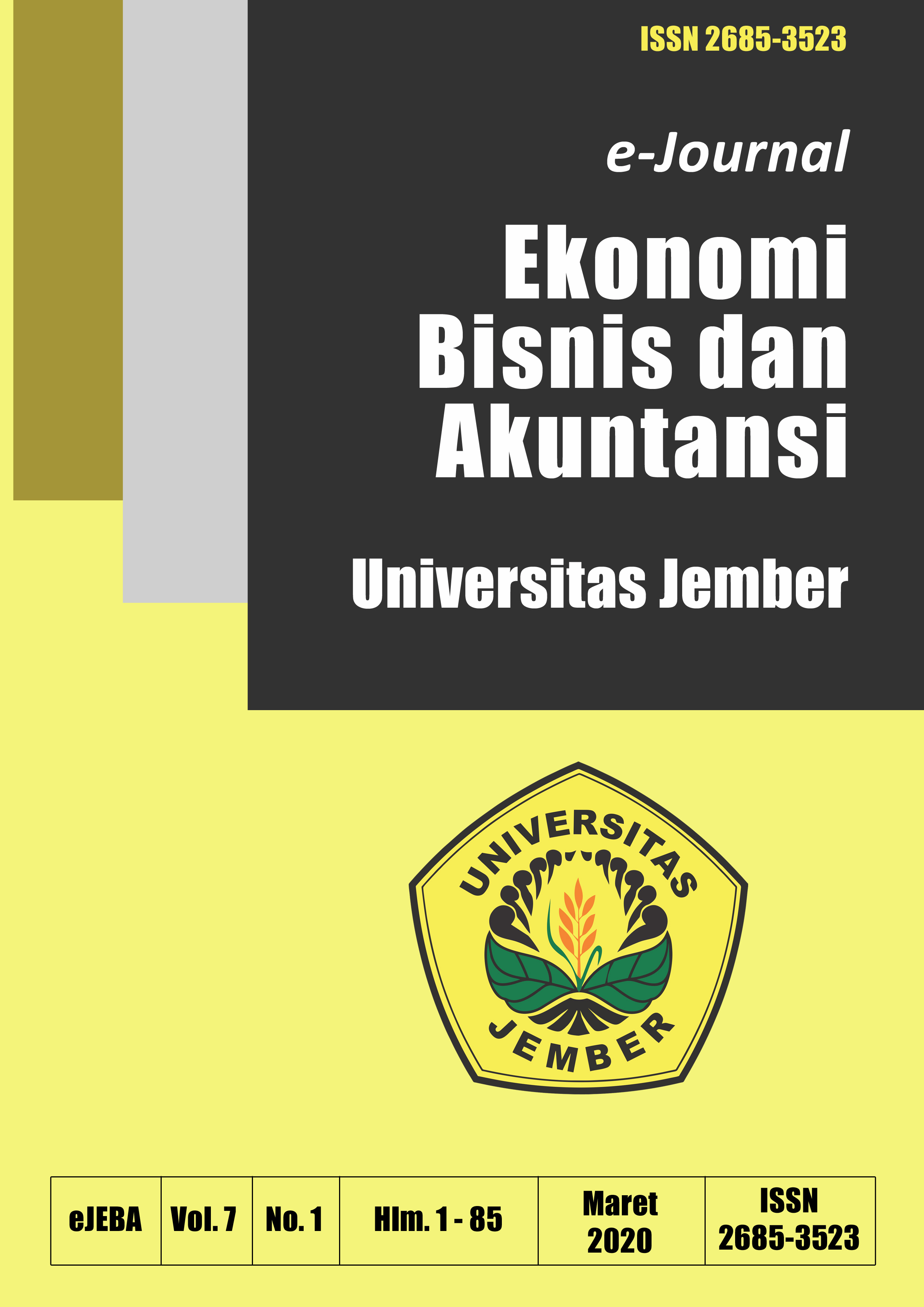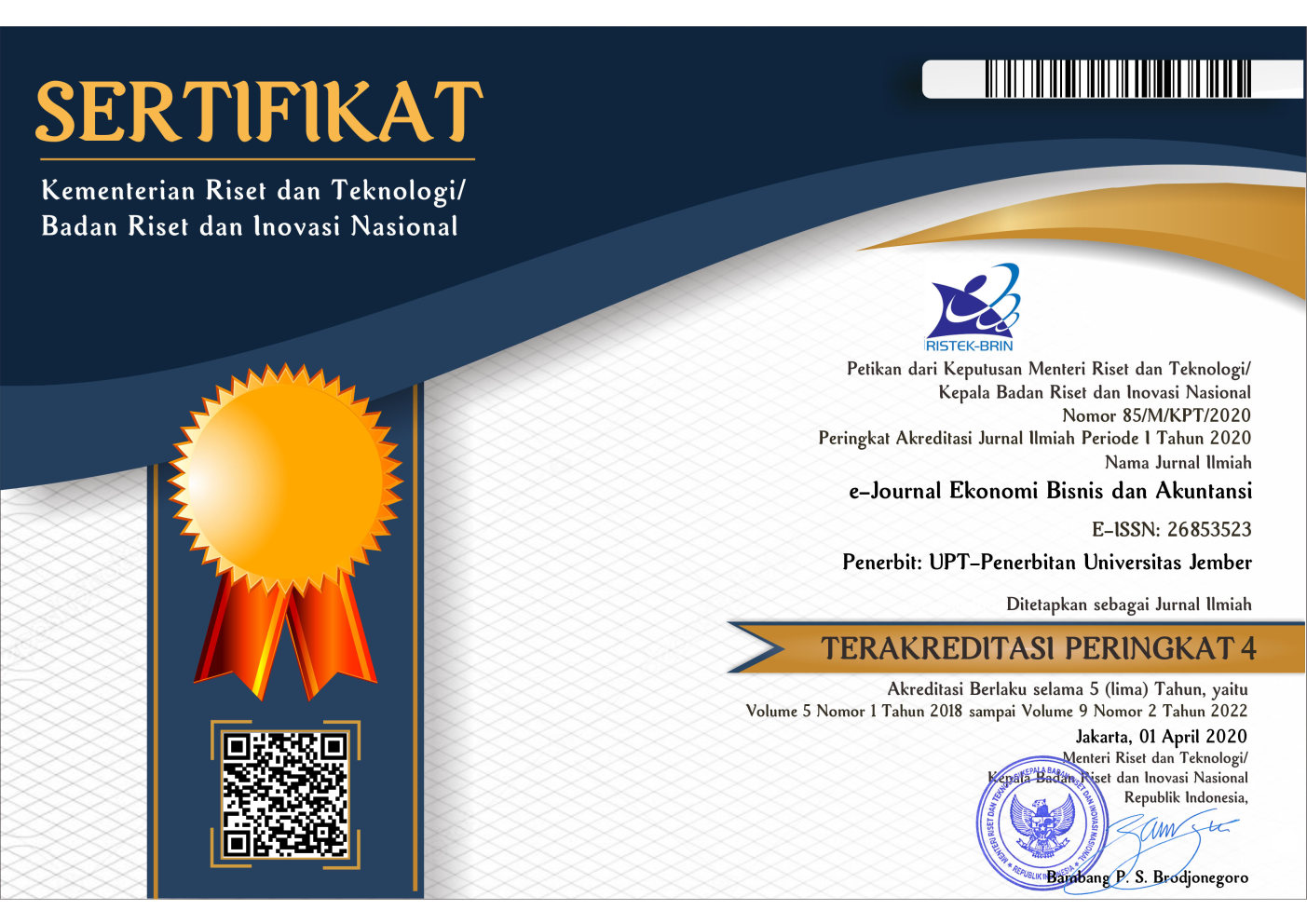Determinan Penyerapan Tenaga Kerja Di Indonesia Tahun 2011-2015
Abstract
Labor absorption is a certain amount of labor that is absorbed and used in a particular business unit to run the production process. The absorption of labor is influenced by the level of investment, and the minimum wage of labor. Determination of the level of wages made by the government in a region will have an influence on the magnitude of the existing unemployment rate. The higher wages set by the government will result in a decrease in the number of people working in the country. This study aims to determine the effect of provincial minimum wages, investment and education levels on employment in Indonesia. The analytical method used in this study is a quantitative analysis method with panel data regression (Pooled Least Squares). The results of the analysis of this study are that the provincial minimum wage, investment and education level variables have a significant positive effect on the employment variable.

















